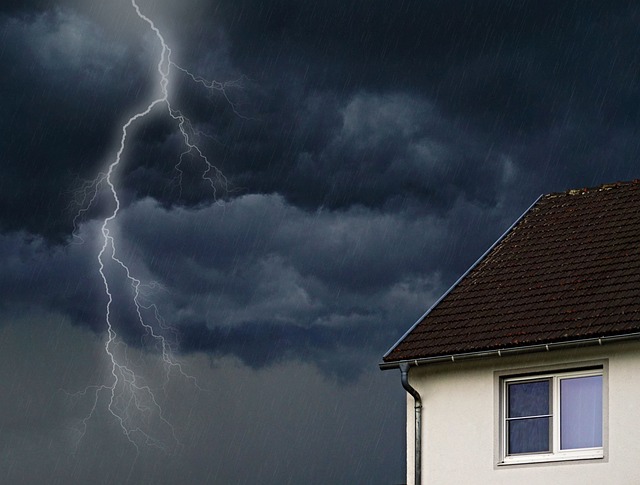Commercial insurance is a critical component for businesses aiming to mitigate risks and protect their financial health. Policies cover a wide range of hazards, from property damage and legal liabilities to worker injuries and operational disruptions. Key policy types include general liability, property coverage, workers' compensation, and professional liability. By understanding these options and conducting thorough risk assessments, businesses can tailor their insurance to specific needs, ensuring resilience in an uncertain market. Regular reviews are essential to maintain adequate coverage as the business evolves, making commercial insurance a powerful shield against unforeseen risks.
“In the dynamic landscape of business, safeguarding your operations against unforeseen events is paramount. This comprehensive guide delves into the intricacies of Commercial Insurance, a vital shield for businesses of all sizes. From understanding the fundamentals to navigating complex claims, this article equips readers with essential knowledge.
Explore why commercial coverage is not just beneficial but indispensable, and discover the various policy types available. Learn about risk assessment techniques, policy customization, and real-world case studies. Empower yourself to make informed decisions, ensuring your business remains resilient in an ever-changing market.”
Understanding Commercial Insurance: A Comprehensive Overview

Commercial insurance is a crucial aspect of managing risks and securing financial stability for businesses. It encompasses a wide range of policies designed to protect companies from potential liabilities, damages, and losses associated with their operations. This includes everything from property damage and legal responsibilities to worker injuries and business interruptions. Understanding commercial insurance involves grasping its various types, such as general liability, property, workers’ compensation, and professional liability, each catering to specific business needs.
A comprehensive overview of commercial insurance requires knowledge of its key components. Policies are tailored to cover assets, protect against lawsuits, and ensure business continuity. They provide financial safeguards during unforeseen events like accidents, natural disasters, or legal disputes. By assessing their unique risks, businesses can select the most suitable coverage, ensuring they remain resilient in an unpredictable market.
Why Commercial Coverage is Essential for Businesses

Commercial coverage, or commercial insurance, plays an indispensable role in safeguarding businesses from potential risks and financial losses. In today’s competitive business landscape, where unforeseen circumstances can arise at any moment, having robust protection is not just beneficial but essential. It acts as a shield against various perils such as property damage, liability claims, and income interruptions, ensuring that businesses can maintain stability and continue their operations seamlessly.
Without adequate commercial insurance, companies face the risk of significant financial strain during critical times. Whether it’s a natural disaster causing physical damage to premises or a lawsuit alleging negligence, these events can be financially devastating. Commercial coverage helps businesses mitigate these risks by providing financial compensation and legal protection, allowing them to focus on growth and success rather than dealing with unexpected crises.
Types of Commercial Insurance Policies: What You Need to Know

Commercial insurance is a vital shield for businesses, protecting them from potential risks and financial losses. The market offers a variety of policies tailored to diverse business needs. Among the key types are property insurance, which covers buildings and their contents against damage or theft; liability insurance, shielding against claims related to bodily injury or property damage; and professional liability insurance, designed to protect businesses from errors or omissions in their services.
Additionally, commercial insurance includes workers’ compensation coverage, essential for safeguarding employees’ health and ensuring legal compliance, as well as business interruption policies that provide financial support during unforeseen events disrupting operations. Understanding these options enables businesses to select the most suitable coverage, creating a robust safety net for long-term success.
Risk Assessment: Identifying Potential Threats to Your Business

Risk assessment is a crucial step in obtaining comprehensive commercial insurance coverage. It involves identifying and analyzing potential threats that could impact your business operations, assets, and financial stability. By assessing these risks, businesses can make informed decisions about the types of coverage they need to protect themselves against various unforeseen events.
This process includes evaluating internal and external factors such as natural disasters, cyberattacks, property damage, liability claims, and market fluctuations. Commercial insurance policies are designed to mitigate these risks by providing financial safeguards and helping businesses recover quickly from adverse situations. A thorough risk assessment ensures that your coverage aligns with your business’s unique needs, offering peace of mind and protection against significant financial losses.
Customizing Your Policy: Tailoring Protection to Your Needs

When it comes to commercial insurance, one size does not fit all. That’s why customizing your policy is essential to securing adequate protection for your business. Every enterprise, whether it’s a retail store, restaurant, or tech startup, faces unique risks and challenges. A well-crafted commercial insurance policy should reflect these specific needs.
By working closely with an insurance broker, you can tailor coverage options to mitigate potential losses. This may include property damage protection tailored to the value of your inventory and fixtures, liability coverage aligned with your industry-specific risks, and specialized policies for high-risk activities or valuable assets. Customization ensures that your business is shielded from financial ruin in the event of unforeseen circumstances, allowing you to focus on growth and success.
Common Commercial Insurance Claims and How to Prepare

Commercial insurance claims can arise from a variety of situations, each with its own unique challenges and financial implications. Common types include property damage claims due to natural disasters or accidents, liability claims stemming from injuries on premises, and business interruption claims resulting from events that halt operations. To prepare for these potential issues, businesses should invest in comprehensive commercial insurance policies tailored to their specific needs. Regular reviews of coverage limits and policy exclusions are crucial to ensure adequate protection.
Additionally, implementing robust risk management strategies can significantly reduce the likelihood and impact of claims. This includes regular maintenance of facilities, training employees on safety protocols, and establishing clear emergency response plans. By combining robust insurance policies with meticulous risk mitigation efforts, businesses can minimize disruptions and financial losses, ensuring a more stable operational environment.
Navigating the Claims Process: What to Expect and How to Proceed

Navigating the claims process for commercial insurance can seem daunting, but understanding the steps involved can help streamline the experience. After a loss or damage occurs, the first step is to contact your insurance provider promptly and report the incident. This usually involves filing a claim, providing details about the event, and supplying any relevant documentation or evidence. Commercial insurers often have specific procedures in place, so it’s crucial to follow their guidelines carefully.
Next, expect an initial assessment of your claim, which may include an inspection of the affected property or business operations. This is to determine the extent of the loss or damage. From there, the insurance company will either approve or deny your claim, providing a detailed explanation for their decision. If approved, they will offer compensation based on the terms outlined in your policy. It’s essential to review and understand your policy coverage, deductibles, and any applicable exclusions to ensure you’re receiving the appropriate benefits.
Staying Protected: Regular Reviews and Updates for Your Policy

Staying protected is paramount for any business owner, and regular reviews and updates to your commercial insurance policy are a critical component of this strategy. Commercial insurance isn’t a one-size-fits-all proposition; as your business evolves, so should your coverage. Regularly reassessing your policy ensures you’re not underinsured or overpaying for areas where your risk has changed.
These reviews allow you to incorporate new risks and opportunities that may have emerged since your last policy update. By staying proactive, you can safeguard your business against unforeseen events and financial losses. A well-maintained commercial insurance policy is an essential tool in building a resilient and sustainable enterprise.
Case Studies: Real-World Examples of Commercial Insurance Success

In the dynamic landscape of commercial ventures, having the right Commercial Insurance can be a game-changer. Case studies from real-world scenarios offer tangible examples of how strategic insurance coverage has transformed potential crises into manageable challenges. For instance, a mid-sized retail business faced a significant data breach, leading to financial loss and damaged reputation. With comprehensive cyber liability insurance in place, they were able to cover the costs of breach notification, credit monitoring for affected customers, and legal defense – minimizing the impact and ensuring continuity.
Another example highlights the importance of property insurance in mitigating physical risks. A small manufacturing firm experienced a major fire that destroyed their facility and equipment. Their business interruption insurance not only provided financial support during the closure period but also helped them secure alternative production spaces and resources, enabling a swift recovery and minimal downtime. These success stories underscore how tailored Commercial Insurance policies can serve as a robust protective shield for businesses of all sizes.
